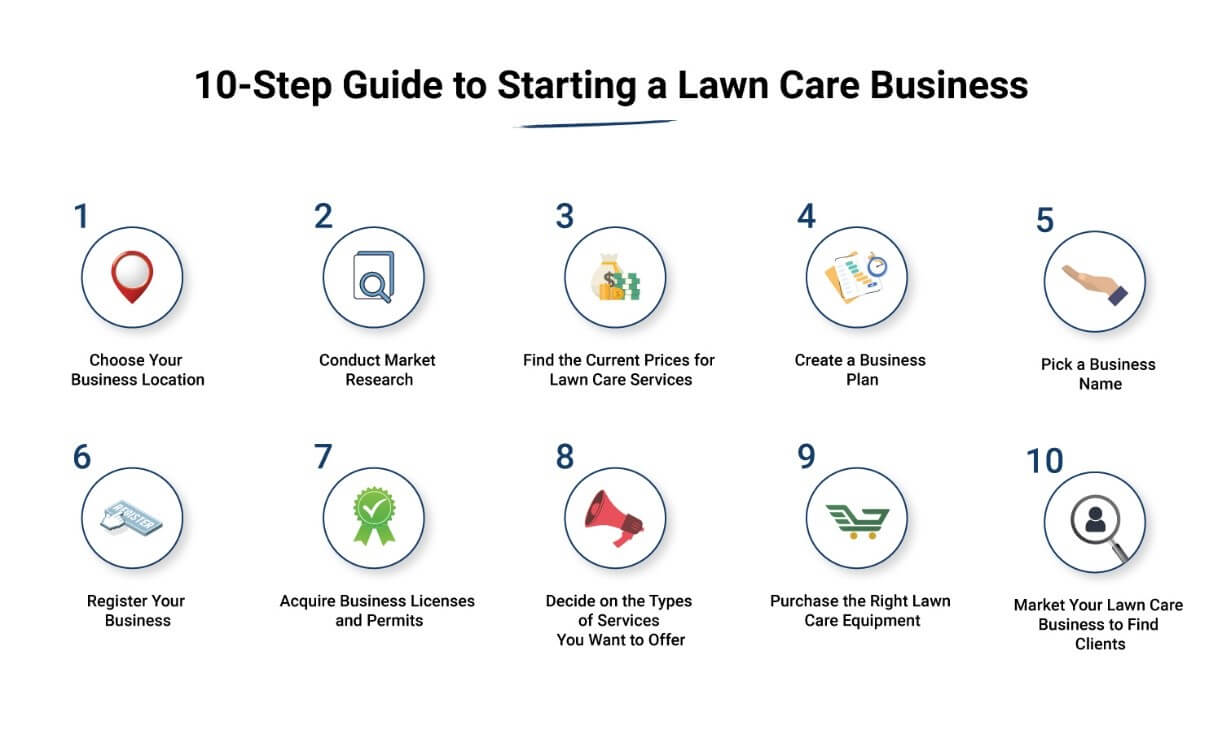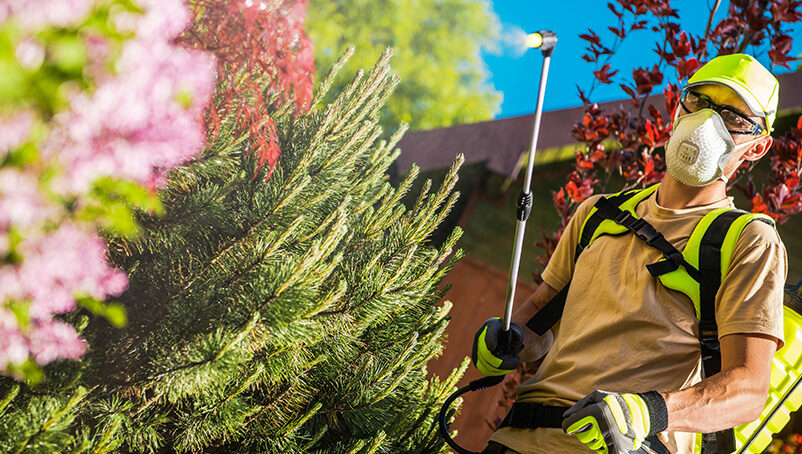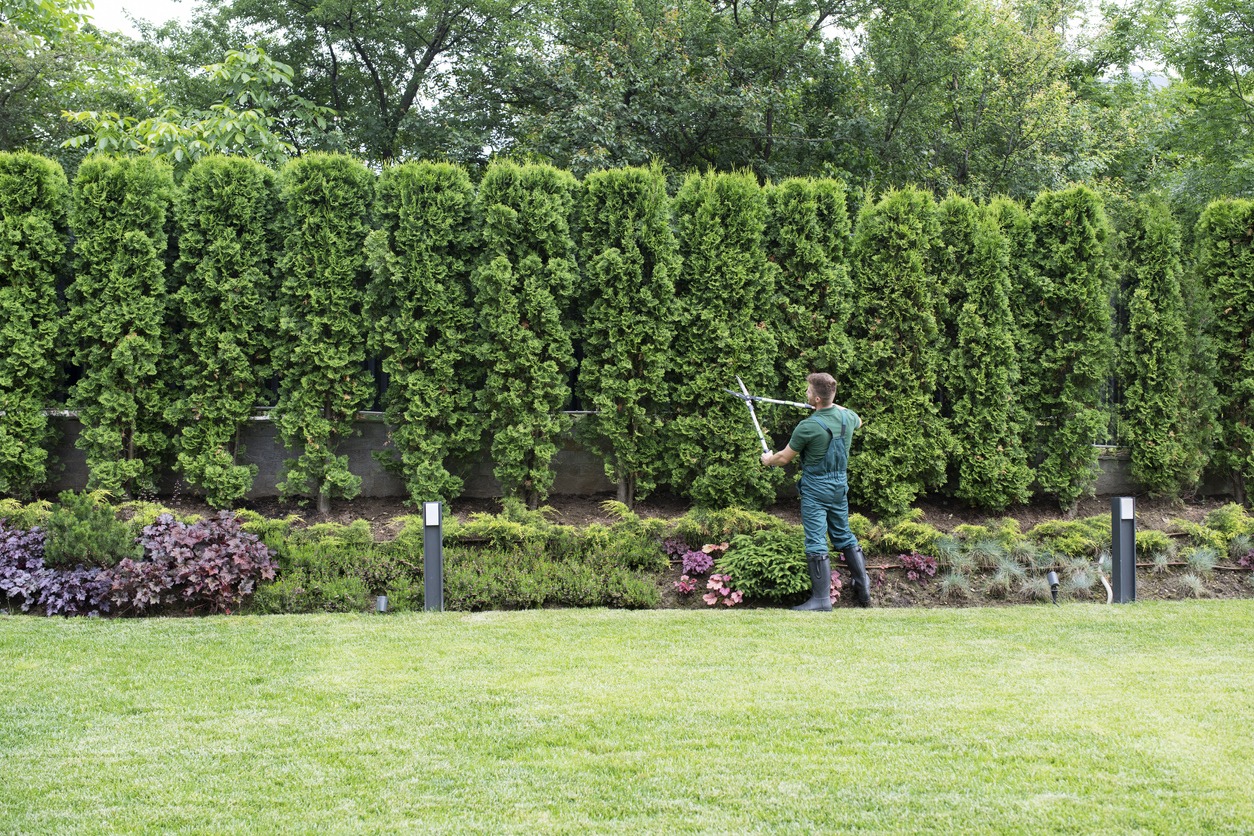What Licenses Are Needed to Start a Landscaping Business?. Thinking about starting a landscaping business? Discover The essential licenses you need To kickstart your journey To success in The green industry!
What is What Licenses Are Needed To Start a Landscaping Business? & how does it work?
Licenses required for landscaping business varies by location. Local & state governments regulate these requirements. They ensure compliance with rules & safety standards. Major licenses often include general business & tax licenses. Some areas require landscaping-specific licenses as well.
Brief history of What Licenses Are Needed To Start a Landscaping Business?
Landscaping emerged as a formal industry in early 20th century. Expansion of suburbs increased demand for landscaping services. Regulatory needs grew with industry developments. States began implementing specific licensing laws over time. Today. Requirements reflect industry goals & public safety.
How To implement What Licenses Are Needed To Start a Landscaping Business? effectively
Implementing licenses requires research & planning. First. Check local regulations for specific licensing needs. Second. Gather necessary documents & fees. Third. Complete applications accurately. Finally. Maintain compliance by renewing licenses on time.
Key benefits of using What Licenses Are Needed To Start a Landscaping Business?
Obtaining proper licenses fosters trust with clients. Licensed businesses often attract more customers. Compliance with local regulations minimizes legal risks. Insured & licensed companies enhance their professionalism. Establishing a reputable image supports long-term growth.
Challenges with What Licenses Are Needed To Start a Landscaping Business? & potential solutions
Understanding licensing requirements can be overwhelming. Each location has unique rules & fees. Keeping track of renewal deadlines poses another challenge. Solutions include consulting local offices or using online resources. Networking with other landscapers provides additional support.
Future of What Licenses Are Needed To Start a Landscaping Business?
Future trends suggest more streamlined licensing processes. Digital applications may simplify compliance. Local authorities might implement online education programs. Growing sustainable practices could influence new regulations. Continued focus on environmental standards will shape future needs.
Table of What Licenses Are Needed To Start a Landscaping Business?
| License Type | Description | Where Applicable |
|---|---|---|
| General Business License | Basic license To operate legally | All Locations |
| Tax License | For collecting sales tax from clients | All Locations |
| Landscaping License | Specific license for landscaping services | Some States |
| Specialty Licenses | Required for specific services like pest control | Varies by Location |
| Insurances | Covers damages & liabilities | Recommended Everywhere |

Researching Local Regulations
Understanding local regulations affects starting any business. For landscaping businesses. That means knowing licensing requirements. Each state. County, & city may have different rules. Research local laws To ensure compliance. This preparation helps avoid costly mistakes later.
Local government websites often provide detailed guidelines on licensing. Check their requirements for landscaping companies. You can find vital information by searching online. This process can save time & effort. If you need assistance. Consider consulting a legal expert.
Sources like Insureon contain helpful insights on licensing. Staying informed promotes a solid foundation for your landscaping business. Review these details often. As regulations can change quickly.
Types of Licenses Needed
Different types of licenses may be required depending on services offered. Common licenses include contractor licenses. Business licenses, & sometimes specialty licenses. Contractor licenses typically apply if you provide specific landscaping services. Verify requirements based on your state’s regulations.
A business license helps register your business officially. Many states require this type of registration for operation. Additionally. Some landscaping businesses may need specialty licenses. These can include pesticide applicator licenses or nursery certifications. Understanding which licenses apply helps ensure compliance.
Research your area thoroughly. Certain regions may enforce stricter regulations on landscaping than others. Make a list of necessary licenses based on your research findings.
Business Structure Considerations
Choosing a business structure significantly impacts licensing requirements. Common structures include sole proprietorships. Partnerships. LLCs, & corporations. Each structure has distinct legal & tax implications.
For example. An LLC offers liability protection. Making it attractive for landscaping businesses. However. Formulating an LLC may require filing additional documents with state authorities. Ensure all aspects are covered when selecting a structure.
Consulting an accountant or legal professional aids in making an informed decision. They can guide you through each business type’s regulatory obligations. Proper structure selection saves potential issues later.
Applying for Permits
Permits may be necessary depending on services provided. Landscapers often need permits for larger projects. Like fencing or patios. These may vary based on location & scope of work.
Most permits require detailed plans submitted for review. Local building departments typically manage this process. Allow time for potential revisions & approvals. Understand costs associated with permits; these can add up quickly.
In some cases. Seasonal permits may apply. These permits allow temporary work. Such as snow removal or seasonal planting. Keep track of these & their expiration dates.
Trade Certifications
Trade certifications may enhance credibility in The landscaping business. Certifications can show expertise & professionalism. Certifications can vary widely. Encompassing specialties like sustainable landscaping.
Many organizations offer certifications. Examples include Landscape Industry Certified Technician or Certified Landscape Professional. Completing these programs demonstrates commitment & skill.
Investing time into obtaining these certifications can pay off. They can differentiate your business from competitors. Customers often prefer certified professionals.
Insurance Requirements
Insuring your landscaping business is crucial. Liability insurance protects against potential damages. Landscapers face risks related To property damage & personal injury. This coverage helps safeguard your assets.
Additionally. Workers’ compensation insurance may apply if you have employees. This insurance covers medical expenses incurred by employees during work. Not having this coverage can lead To legal complications. Familiarize yourself with local insurance requirements.
Seeking advice from an insurance agent can help you find appropriate coverage. They can provide insights on policy options. Balancing coverage & affordability can benefit your business.
Hiring Employees
Hiring employees requires compliance with labor laws. Ensure you register for an Employer Identification Number (EIN). This number is necessary for tax reporting purposes. With employees. Payroll management becomes essential.
Each employee may need background checks or specific training. Make sure training involves safety practices. Equipment usage, & customer service. Providing adequate training promotes a productive workforce.
Staying informed about labor laws affects your hiring strategy. Regulations can change. Which may impact payroll or benefits. Regularly consult legal resources To remain compliant.
Networking & Community Involvement
Networking within your community provides valuable resources. Joining local associations or groups can connect you with other businesses. Building relationships fosters collaboration among professionals.
Community involvement can improve your reputation. Sponsor local events or participate in initiatives To gain visibility. Engaging with your community reflects your commitment & strength.
Social media platforms can also enhance networking opportunities. Engaging on platforms like Facebook or LinkedIn connects you with potential clients. Consider creating dedicated pages for your landscaping services.
Financial Planning
Create a comprehensive financial plan for your landscaping business. This plan should encompass startup costs. Ongoing expenses, & revenue projections. Understanding your cash flow is essential for longterm success.
Breakdown each service & its related costs. This helps identify pricing strategies necessary for profitability. Determining competitive pricing also aids attracting customers.
Consulting a financial advisor may provide additional insights. They can offer valuable strategies in managing expenses. Comprehensive planning allows for better decisionmaking down The road.
Marketing Strategies
Implementing effective marketing strategies increases business visibility. Online marketing plays an essential role in reaching potential customers. Create a userfriendly website showcasing your services & offerings.
Consider using social media for promotions or showcasing completed projects. Regular updates keep your audience engaged. Digital marketing can extend your reach significantly.
Additionally. Traditional marketing methods remain important. Flyers. Local newspapers, & community bulletin boards can supplement online efforts. Balancing both methods can optimize marketing impact.
Environmental Compliance
Landscapers often deal with environmental regulations. Compliance with these regulations ensures sustainable practices. For instance. Pesticide applications must adhere To specific guidelines.
Understanding local laws regarding water usage also promotes environmental responsibility. Many regions enforce strict water conservation measures. Staying informed helps avoid penalties or fines.
Highlighting ecofriendly practices can attract environmentally conscious customers. Promote your commitment through marketing materials & online presence. Many consumers prefer businesses prioritizing sustainability.
Continuing Education
Engaging in continuing education keeps your skills sharp. Regular training on emerging trends. Products, & techniques helps maintain competitive advantages. Many organizations offer workshops or online courses tailored for landscapers.
Networking with peers often provides additional learning opportunities. Sharing insights & experiences can enhance knowledge & skill sets. Consider joining professional landscaping organizations for access To training sessions.
Encouraging employees To participate in ongoing education fosters growth. This commitment reflects positively on your business. Investing in your team’s development pays dividends in quality service.
Managing Client Relationships
Strong client relationships are key To business success. Excellent customer service cultivates loyalty & repeat business. Responding promptly To inquiries showcases your professionalism.
Consider establishing clear communication channels. Clients appreciate transparency regarding project timelines & costs. Regular updates during projects foster trust & satisfaction.
Gathering feedback can also improve client relationships. Encourage reviews. Testimonials, & suggestions. Use this feedback constructively To enhance services & address concerns.
Understanding Compliance Audits
Compliance audits may occur periodically for landscaping businesses. Authorities assess adherence To licensing & regulations. Being prepared can streamline this process.
Keep all necessary documentation organized. This includes licenses. Permits. Work contracts, & insurance documents. An organized system simplifies audits & demonstrates compliance.
Regularly review your business practices To ensure ongoing adherence. Engaging with legal professionals for audits & assessments may help identify potential issues. Proactively addressing compliance helps avoid fines.
Building a Solid Reputation
Your landscaping business thrives on reputation. Consistently delivering quality work builds credibility. Satisfied customers often refer others. Boosting growth through word of mouth.
Invest time into creating a professional brand. This includes professional branding materials. Website, & social media presence. Branding reflects your business values & helps differentiate you from competitors.
Addressing concerns or issues quickly enhances your reputation. Always strive for highquality service & client satisfaction. Building a strong reputation takes effort but pays off significantly.
- ✔️ Obtain required licenses
- ✔️ Research local regulations
- ✔️ Ensure proper insurance coverage
- ✔️ Consider trade certifications
- ✔️ Develop financial plans for sustainability
Personal Experience
Starting my landscaping business taught me invaluable lessons. Understanding local regulations was crucial. Each requirement brought unique challenges & insights into industry practices.
Networking with professionals provided guidance & support. This collaboration helped navigate hurdles successfully. Developing a strong client base took dedication & patience.
Each project contributed To honing my skills. Delivering quality service became a top priority. This journey revealed both challenges & rewards in landscaping.

Understanding Licensing Requirements for Landscaping Businesses
Starting a landscaping venture involves careful consideration of legalities. Keep in mind that licenses vary based on location. Local. State, & federal regulations play critical roles. Researching these requirements remains essential for longterm success. Ensuring compliance with each level of regulation protects against potential fines or shutdowns. Visit this link for detailed information: What To Know When Starting a Lawn Care Business in Florida.
Types of Licenses Required
Landscaping businesses often require multiple licenses. A business license serves as an official authorization for operations. Additionally. A contractor’s license may become essential for specific services. Standards dictate that certain projects need a licensed professional. Each type of license comes with its own set of criteria. Understanding those will streamline application processes.
Some states mandate pesticide applications licenses for treatments. Regulations for herbicides & fertilizers require adherence. Research local guidelines for applying these chemicals safely. This helps ensure responsibility towards environmental standards.
Environmental regulations shape The landscape industry’s operations. Adhering To these laws helps maintain natural ecosystems. Compliance will enhance your reputation as a responsible business. Check additional licensing details here: Landscaper Licensing Requirements.
Regional Differences in Licensing
Licensing varies markedly across different regions. Some states impose stricter guidelines than others. Familiarize yourself with local ordinances for specific requirements. Urban areas often have unique zoning laws governing landscaping activities.
In contrast. Rural regions might have lax regulations. Nonetheless. Seeking necessary permits remains crucial regardless of location. Depending on your state. Licenses can differ from one city To another. Stay informed about local changes or amendments To regulations.
It’s vital that you consult with local authorities. This ensures accurate & timely updates regarding licensing. Additionally. Consider attending workshops or networking events. Engaging with other industry professionals offers valuable insights.
Obtaining Business Licenses
Securing a business license represents first step. Usually. This process involves submitting an application online or in person. Include basic details like business name & owner information. Structures vary per jurisdiction. So checking local guidelines is necessary.
After submitting documentation. Await approval from relevant authorities. Sometimes. Background checks or additional documentation become necessary. Preparing all materials beforehand speeds up this process considerably.
Fees for business licenses vary widely. Expect To budget accordingly for these expenses. Remember. This license signifies your commitment To operating legally.
Specialized Licenses & Certifications
Certain landscaping services require specialized licenses. These usually pertain To tree removal. Irrigation. Or pesticide application. States often mandate certification for these specific services. Ensuring professionalism.
Obtaining certifications shows clients your expertise. Many organizations offer training programs covering best practices. Consider enrolling in such programs for additional credibility.
Specialized licenses often require recertification periodically. Stay updated with your skills & knowledge. This applies particularly if working with pesticides or heavy machinery.
Insurance & Bonding Considerations
Aside from licenses. Consider acquiring appropriate insurance. Liability coverage protects against accidents during operations. This safety net provides peace of mind for business owners.
Additionally. Verify whether bonding becomes necessary. In many locations. Bonds act as guarantees for project completion. This assures clients that their investments remain safe.
Contact insurance agents familiar with landscaping businesses. They will help identify necessary coverage. Create a comprehensive insurance plan tailored for your operations.
Comparing Licensing Needs by State
| State | Business License Required | Contractor License Needed | Pesticide Certification Needed |
|---|---|---|---|
| Florida 🌞 | Yes | Yes | Yes |
| California 🌳 | Yes | Yes | Yes |
| Texas 🤠 | Yes | No | Only for Application |
Personal Experience with Licensing
In my landscaping journey. Licensing became an invaluable lesson. Early on. I felt overwhelmed by regulations. Seeking help from professionals simplified this process immensely. Eventually. I understood requirements for my local area.
As I navigated each step. Guidance from peers offered crucial insights. Their experiences shaped my approach towards obtaining necessary documents. Progress became smoother through shared knowledge & collaboration.
Today. I confidently run my landscaping business. Compliance with licenses transformed operations into a seamless experience. Understanding this journey inspires others in similar fields.
Final Steps for Compliance
Arrange all licensed information in an accessible manner. Creating a checklist may prove beneficial. It ensures all necessary documents remain on file & up To date. Regularly review local regulations for any changes.
Joining local landscaping associations helps maintain connections. Networking fosters relationships that can offer guidance. Keeping informed about industry trends becomes crucial for overall growth.
Encourage transparency with clients regarding licensing. Providing proof of compliance showcases professionalism. This builds trust & strengthens client relationships for various projects.
What types of licenses are typically required for a landscaping business?
Typically. Landscaping businesses may require a general business license. A landscaping contractor’s license, & potentially a pesticide applicator’s license if they use chemical treatments.
Do I need a business license To operate a landscaping business?
Yes. Most states require landscaping businesses To obtain a general business license To operate legally.
Is a contractor’s license necessary for landscaping services?
A contractor’s license may be necessary depending on The state & The specific services offered. Particularly for larger projects or those involving construction.
What is a pesticide applicator’s license?
A pesticide applicator’s license is required for businesses that apply pesticides or herbicides as part of their landscaping services To ensure safe & compliant practices.
Do I need insurance for my landscaping business?
Though not a license. Obtaining liability insurance is highly recommended for landscaping businesses To protect against potential damages & claims.
Are there any health & safety licenses required?
Some regions may require additional health & safety training & certifications. Especially if handling chemicals or operating heavy machinery.
What permits could I need To landscape in residential areas?
Permits for landscaping in residential areas can include zoning permits. Tree removal permits, & other local requirements based on The specific area’s regulations.
How do I find out The specific requirements for my state?
You can check with your state’s business licensing office. The local chamber of commerce. Or The state’s Department of Labor for specific licensing requirements.
Is there a difference between a business license & a contractor’s license?
Yes. A business license allows you To operate a business legally. While a contractor’s license certifies your qualifications To perform specific types of work in landscaping.
Can I operate a landscaping business without a license?
Operating without The necessary licenses can lead To fines. Legal issues, & an inability To secure contracts with clients.
What are The consequences of not having The proper licenses?
The consequences can include fines. Shutdown of your business, & legal actions taken by local authorities or clients.
Do I need a vendor’s license?
A vendor’s license may be required if you sell plants. Landscaping materials. Or other products related To your landscaping services.
Should I check for certifications as well?
While not licenses. Certifications in specific landscaping techniques or equipment usage can enhance your credibility & attract more clients.
Do I need a license for lawn maintenance services?
Yes. Depending on your state. Lawn maintenance services may require a business license & possibly a contractor’s license if you perform any construction work.
What is The process for obtaining a landscaping license?
The process typically involves completing an application. Meeting specific qualifications. Passing any required exams, & paying associated fees.
Conclusion
Starting a landscaping business can be a rewarding venture, but it’s essential To have The right licenses in place. Depending on your location, you may need a business license, a contractor’s license, & possibly even a pesticide applicator’s license. Don’t forget about permits for any special equipment! By taking The time To gather these licenses, you’ll not only be following The law but also building trust with your clients. So, do your research, prepare your paperwork, & get ready To bring your landscaping dreams To life. With The right steps, success is just around The corner!





